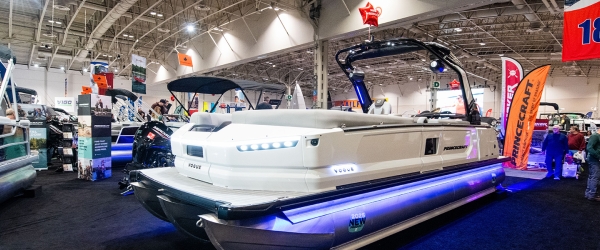Springing back into Summerization
It's that time. We're heading full steam into boating season and shifting our gears to make the summer a reality for the many boaters of Central Ontario. The 'summerization' process is one that we all look forward to. It represents the final steep before we can finally get out and enjoy the pleasures of boating.
When you store you boat with Buckeye we take care of all the steps involved so you can spend less time worrying about your boat's condition, and more time doing the things you love out on the water. This article will walk you through all of the components in the summerization process and what you can do after receiving your boat to ensure the best success this season.
1. Checking Fluid Levels
When your boat goes in for winterization it's important to remove any excess of certain fluids from the vessel so that freezing does not cause any internal damage to the boats components. When servicing the boat back to its summer condition it's important to replenish any crucial fluids so that the boat is in safe operating conditions.
This includes: topping up engine oil, power steering fluid, transmission fluid and adding fresh gasoline. Similarly, if the boat has an on-board sink or water tanks of any kind, this is the time to fill and treat those as well. It's also essential to check and address any leaks or signs of damage that may have occurred during the winter.
2. Charge & Reconnect Battery
During the off season the boats battery can lose its charge. It's essential to replenish the battery's power and inspect the terminals for any sign of corrosion that might hinder its performance. Any electronic components that may have been disconnected in the winterization process are now ready to be reconnected. It is also important to ensure lights and Horns, for example, are vital for water safety and should always be in working order before hitting the water.
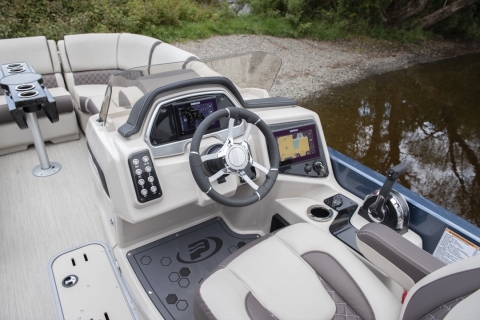
3. New Impellers
The impeller is a key mechanical part to ensure your engine is supplied with the water necessary to keep it cool. It serves its role by pumping cold water into the engine to prevent overheating. When not in use for extended periods of time the impeller risks drying out and is more susceptible to damage, thereby risking the health and efficiency of your engine. Most manufacturers recommend replacing the impeller every 2-3 years and spring is the perfect time to replace this warepart.
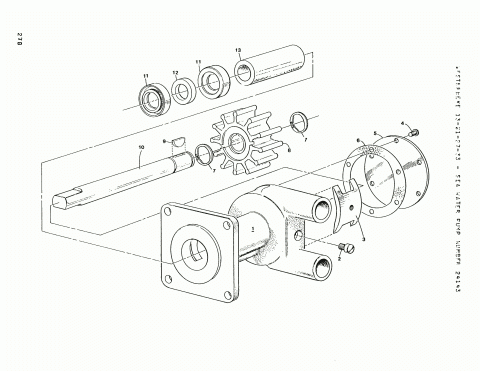
4. Diagnostics & Tune-Ups
Performing a tune-up on your boat's engine is essential for the health of your vessel and will ensure that it stays running smooth and efficiently. A tune up may include any of the following: Replacing spark plugs, checking and adjusting the timing and idle speed, inspecting the fuel lines and filters, and checking the ignition system. Unlike with your car, a tune-up on your boat is best left too be diagnosed and performed at the recommendation of a certified technician, rather than at a specific hour interval.
5. Cleaning & Detailing
It's always great to have a spotless hull and interior when hitting the water for the first time in summer. A well maintained boat deserves to look its best. Not only is a clean boat an aesthetic bonus, but with a fresh waxing, your boat is also protected from the harsh sun and other harsh environmental factors.
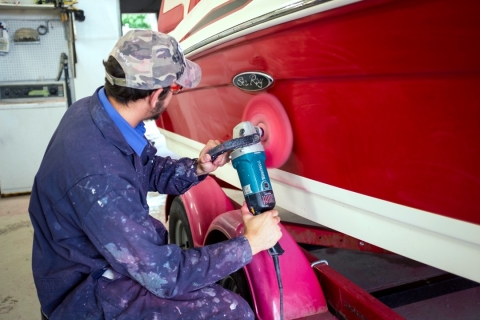
What can you do?
While a professional service department can take care of just about all of these aspects, there are a few things to keep in mind as the boat owner...
6. Drain Plug
If there's one thing we'll never stop reminding boat owners, it's to always check your drain plug! Before getting out on the water you should always check to see if the drain plug(s) is in working condition and that it has been installed correctly. The last thing we would want is to forget the drain plug all together! Checking and maintaining your drain plug may seem like a small detail, but it can make a significant difference in keeping your boat safe and dry throughout the boating season.
Similarly, if you store your boat on land outside, ensure that the plug(s) is removed. A build up of rain water can negatively effect the components of the boat if not drained properly. This results in the boat effectively sinking on land!
7. Safety Checks
Safety should always be a top priority when boating. As part of the summerization process, it's important to check all the safety equipment on board, including life jackets, flares, fire extinguishers, navigation lights, and first aid kits, and replace them as needed. Remember, if a lifejacket or PDF is ripped or torn in anyway, it is no longer certified and should be discarded. Lifejackets and PDFs can not be repaired.

8. Cover Poles
Make sure that the poles for your boat's cover are properly installed upright, at the proper height, when applying your cover so that it can effectively do its job of protecting your boats interior from the elements.
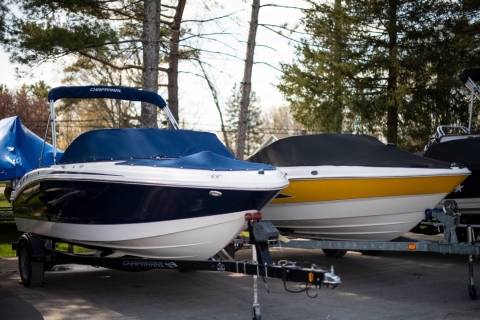
9. Barn Storage?
For those who store their boat in a barn, whether it be through the winter, or throughout the boating season, one piece of advice we have is to check for any rodent damage to your boat's bellows. Rodents are particularly fond of the rubber on these accordion like components. We suggest keeping an eye out for any holes or nicks in the structure of your bellows as leaking bellows result in your boat taking on water and can cause it to sink. This also applies to anyone else storing their boat privately where there is a chance of rodent population.
10. First Run
When getting the boat out on the water for the first time, it's important to note a few key things. Primarily, make sure that the drain plug(s) are installed. Next, let the boat lit at idol on the tailer at the launch to ensure that the engine is getting up to temperature, and stabilizing. Also check for leaks in the engine compartment just for good measure. Once all is checked, it's time to push off on your way to an amazing summer of boating.
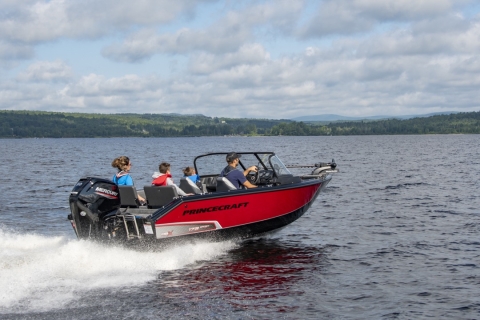
We're thrilled to be helping everyone make this boating season a reality and we couldn't do it without our stellar service department.
Sincerely,
Your Buckeye Marine Crew
